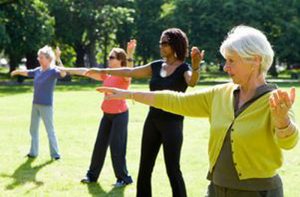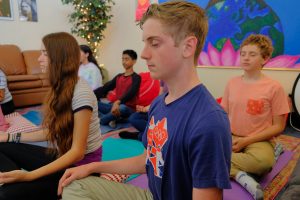Effectiveness of Mindfulness Training on Stress Depends Upon Baseline Levels of Anxiety and Sleep Disruption
By John M. de Castro, Ph.D.
“Chronic stress can impair the body’s immune system and make many other health problems worse. By lowering the stress response, mindfulness may have downstream effects throughout the body.” – American Psychological Association
Mindfulness training has been shown to improve health and well-being in healthy individuals. It has also been found to be effective for a large array of medical and psychiatric conditions, either stand-alone or in combination with more traditional therapies. One of the primary effects of mindfulness that may be responsible for many of its benefits is that it improves the physiological and psychological responses to stress. But there are large individual differences in the effectiveness of mindfulness training for reduction in stress and its effects. Hence, there is a need to investigate what individual characteristics may predict the positive benefits of mindfulness training.
In today’s Research News article “Do gender, anxiety, or sleep quality predict mindfulness-based stress reduction outcomes?.” (See summary below or view the full text of the study at: https://www.ncbi.nlm.nih.gov/pmc/articles/PMC7814316/ ) Brown and colleagues recruited adult participants in an 8-week Mindfulness-Based Stress Reduction (MBSR) program. the program consists of weekly training meetings that include meditation, yoga, and body scan along with group discussion and daily home practice. The participants were measured before and after the program for anxiety. depression, sleep quality, stress-related symptoms, and emotion regulation.
They found that in comparison to baseline after the Mindfulness-Based Stress Reduction (MBSR) program there was a significant decrease in stress-related symptoms and emotion suppression and a significant increase in cognitive reappraisal. Participants who were high in anxiety and sleep disruptions at baseline had significantly greater reductions in stress-related symptoms and greater increases in cognitive reappraisal after MBSR. In addition, men had significantly greater decreases in emotion suppression after MBSR than women.
This study lacked a control (comparison condition). So, caution must be exercised in reaching definitive conclusions. But previous controlled studies have demonstrated that mindfulness training results in significant decreases in the physiological and psychological responses to stress and improvements in emotion regulation. So, the present findings are likely due to the impact of the Mindfulness-Based Stress Reduction (MBSR) program.
The study demonstrates that the characteristics of the participants at the beginning of the Mindfulness-Based Stress Reduction (MBSR) program predict it’s impact. Participants who are highly anxious and have troubled sleep at the start tend to benefit the most. Since anxiety and sleep disruption tend to contribute to stress and mindfulness training has been shown to decrease anxiety and improve sleep, it is not surprising that they would be predictive of greater reduction in stress-related symptoms. Nevertheless, the results suggest that MBSR should be employed particularly for anxious individuals and those with troubled sleep.
So, effectiveness of mindfulness training on stress depends upon baseline levels of anxiety and sleep disruption.
“The benefits of mindfulness training may persist for years, because learning to be mindful is something that can be applied to your daily routine.” – Arielle Silverman
CMCS – Center for Mindfulness and Contemplative Studies
This and other Contemplative Studies posts are available on Twitter @MindfulResearch
Study Summary
Brown, M. M., Arigo, D., Wolever, R. Q., Smoski, M. J., Hall, M. H., Brantley, J. G., & Greeson, J. M. (2021). Do gender, anxiety, or sleep quality predict mindfulness-based stress reduction outcomes?. Journal of health psychology, 26(13), 2656–2662. https://doi.org/10.1177/1359105320931186
Abstract
Although mindfulness-based stress reduction (MBSR) can improve health and well-being, less is known about factors that predict outcomes. This prospective observational study examined gender and baseline anxiety and sleep quality as predictors of change in emotion regulation and stress symptoms following an 8-week MBSR program. Women and men reported similar improvement in stress symptoms and cognitive reappraisal, whereas men improved more in emotion suppression. Individuals with higher anxiety and worse sleep pre-treatment benefited most in terms of decreased stress. Evaluating pre-treatment characteristics could help determine optimal candidates for MBSR training and could optimize outcomes for both women and men.









